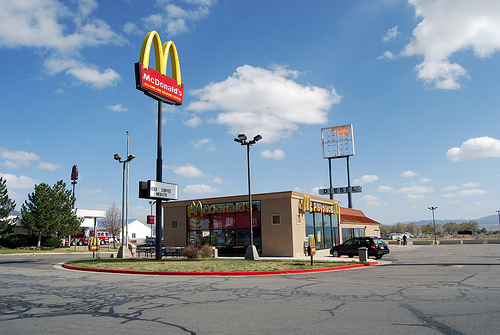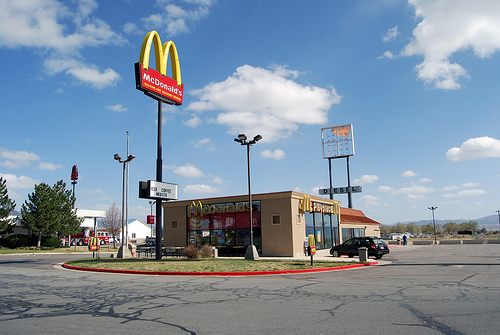 Which part of a cow does a Big Mac come from?Photo: RoadsidepicturesDearest readers,
Which part of a cow does a Big Mac come from?Photo: RoadsidepicturesDearest readers,
Thanks to those of you who shared how you’re adding better experiences to these laptop lives many of us are living. It sounds like food, friends, farming, and other fun things that don’t necessarily belong with the letter “F” are making you feel connected.
Speaking of F’s, let’s talk about food in our continued discussion of United States of Americana — Backyard Chickens, Burlesque Beauties and Handmade Bitters: A Field Guide to the New American Roots Movement, by Kurt B. Reighley.
In the book’s second chapter, “Food for Thought,” Reighley talks about getting more connected to the food that sustains us. Reighley writes, “We want to feel a closer connection to the people, places, and processes that yield our daily bread.”
He gives an overview of some hands-on, down-home things people are doing to make that connection: keeping backyard chickens, canning their own pickles and preserves, and visiting old-school butchers.
This says a lot, quite nicely:
Picking your own strawberries involves understanding how strawberries grow, in relation to seasons and weather, soil conditions, in a way that simply buying a prepackaged pint doesn’t.
About butchering, Reighley notes that you get more when you buy meat from someone who has learned the old ways of cutting meat, who sees it as a craft, and who shares their appreciation for the food:
[B]y educating diners about their flesh-and-blood food sources, the modern butcher raises our appreciation for life — and making the most of it. Every last scrap.
Have you ever had that kind of experience at a McDonald’s?
So readers, how are you connecting to food where you live? How has your relationship to food changed in recent years? Have you canned? Eaten an egg from a backyard chicken? Gone to a local butcher? Butchered your own meat? And if you’re reading the book, what do you think of Reighley’s Easy Hot-N-Sour pickle recipe on page 30?
I’m picking one lucky commenter each day to receive a free copy of the book. So leave your comments below for a chance to get this great guide to the new American roots movement in your mailbox.
Come back tomorrow for more new Americana conversation.
Picklishly,
Umbra




